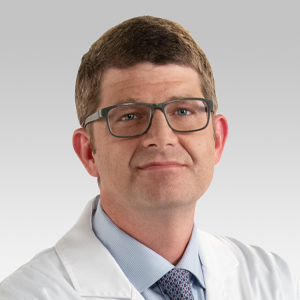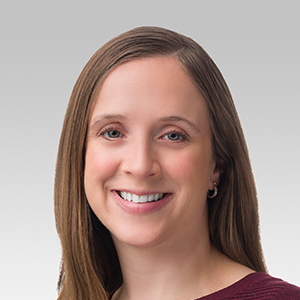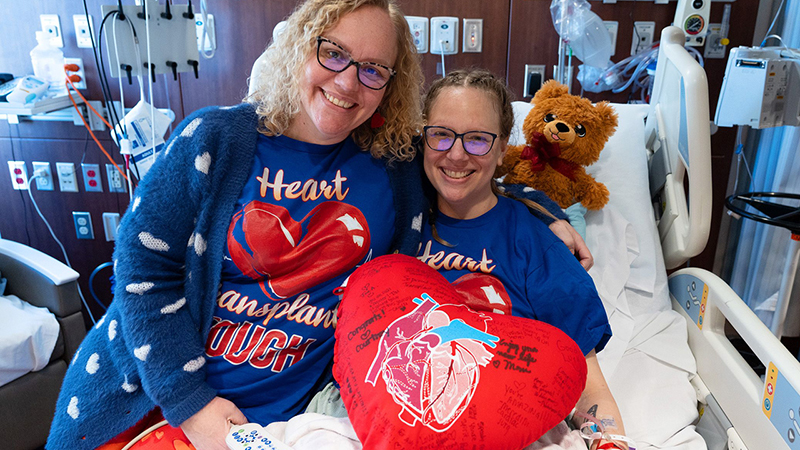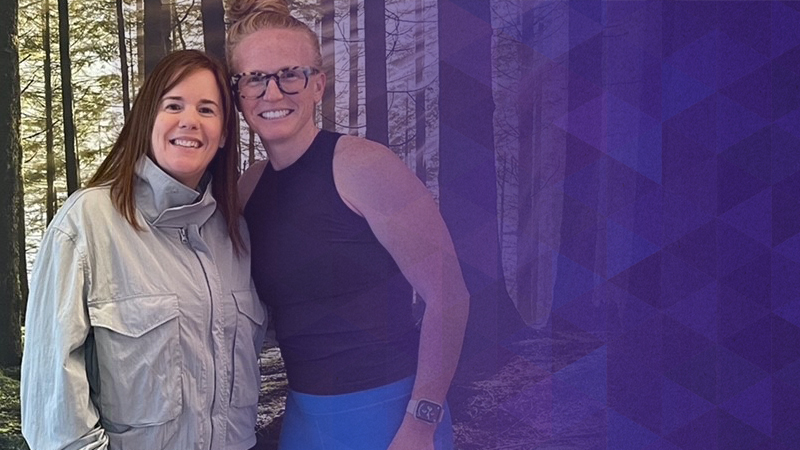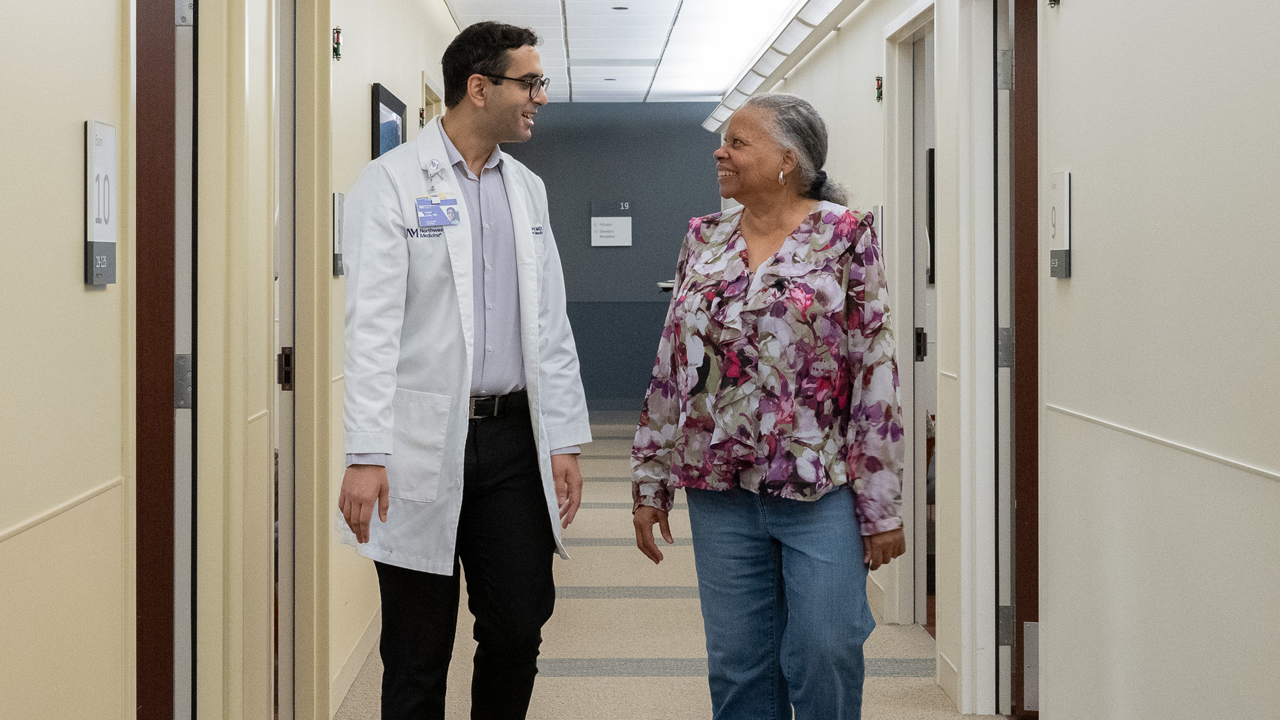How A Northwestern Medicine Surgical Team Prevented Paralysis
Novel Surgery Improved Phil’s Recovery Just in Time for the Holidays
Published November 2022
For his whole life, Phil Rister was told he had migraines. One day, though, the pain was worse than usual. He started having blurred vision and dizziness, so he went to the emergency room. That is when he got a magnetic resonance imaging (MRI) scan for the first time and learned that he had basilar impression, a rare condition that happens when the top of the spine presses into the base of the skull. In Phil’s case, his brain and spinal cord were compressed.
Phil’s condition was extremely painful, and without surgery to correct the issue, he was told that he would be paralyzed in five to 10 years. He was terrified, he says.
Phil was told he needed an invasive, high-risk procedure to repair the compression. Phil didn’t feel confident in his care team at the time, which was at a different academic medical center in the United States. Phil thought, “I can do better than this hospital.” So, he started researching where he could go for the leading-edge care he needed. Phil works in healthcare administration and knew getting a second opinion is important.
“When it comes to neurosurgery, you have to do your due diligence,” Phil explains. “Nothing is more serious than that.”
Pursuing Excellence
After reading about a novel procedure developed by Jean-Paul Wolinsky, MD, and other physicians, Phil was referred to Northwestern Medicine by a physician at a second academic medical center. This physician told Phil he would not trust anyone else to do this surgery, Phil says.
We were able to get Phil back on his feet in a few days instead of a few months.— Jean-Paul Wolinsky, MD
Then, Phil reached out and shared his scans with Dr. Wolinsky, and the two chatted on the phone about Phil’s case.
"Dr. Wolinsky told me that he could do the surgery,” Phil says. “He was so confident, and it really put my mind at ease.”
The surgery Phil needed has traditionally been approached through the mouth, during which the jaw is split to gain access to that part of the spine to perform the surgery. Patients undergoing this procedure usually require a feeding tube and a tracheostomy for at least six weeks. Dr. Wolinsky was one of the physicians that developed a new surgical approach called an endoscopic transcervical odontoidecomy. This surgery is performed through a small hole in the neck, which reduces the risk of complications and drastically improves recovery time.
With this in mind, Phil had complete trust in Northwestern Medicine and Dr. Wolinksy and was now ready for his procedure.
Phil said goodbye to his three young daughters, and he and his wife took a 14-hour road trip to Chicago, Illinois, from North Carolina.
In early December 2021, Phil went into surgery. Confident in Dr. Wolinsky and the proposed innovative approach, Phil says he wasn’t worried at all.
Embracing Recovery
The surgery ended up taking more than 8 hours to complete. During the procedure, Dr. Wolinsky and the surgical team detached Phil’s skull from his spine and carefully drilled away at the part of the spine that was pressing into the brain stem. Then, they rebuilt his spine with screws and rods.Dr. Wolinsky and Phil’s surgical team completed the procedure successfully; Dr. Wolinsky even called Phil’s wife multiple times during the surgery to keep her updated. Because of the innovative approach that Dr. Wolinsky and the care team used, Phil was out of bed and walking around within days, instead of weeks or months.
“Traditional therapy would include a tracheotomy and feeding tube for several weeks,” explains Dr. Wolinsky. “But with this innovative treatment, we were able to get Phil back on his feet in a few days.”
Phil made it back home with his daughters in time for the holidays, and he was back to work in mid-January 2022. Phil’s condition is now considered cured, and he has completely recovered.
After the procedure, Phil had telehealth check-ups with Dr. Wolinsky and did his rehab in his home state of North Carolina.
Phil says the gratitude he feels for his care team is unmatched.
“My team didn’t just give me back my life,” he says. “They gave my girls back their dad.”





